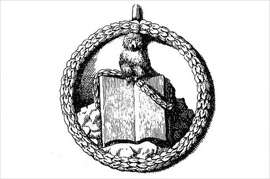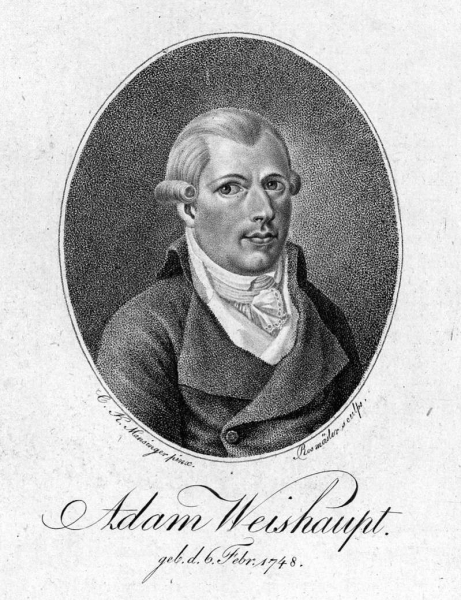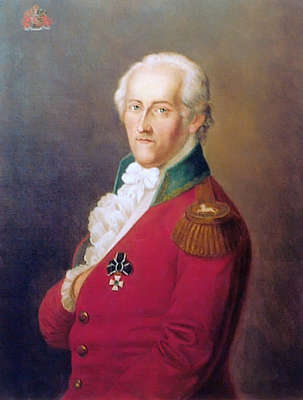
The symbol of the Bavarian Illuminati included an owl – the bird of the goddess of wisdom Minerva, 1776.
245 years ago, on May 1, 1776, on the banks of the Danube, in the Bavarian city of Ingolstadt, a secret society was established, which was originally called the “Union of Cultivators”. The version of the “Union of Bees” was also considered, but this symbol too smelled like Freemasonry. Bees as “gatherers of wisdom” and at the same time the builders of the hive, this “perfect home”, were taken into circulation by free masons for a long time.
In principle, the creation of another secret society in the German lands of those years should be perceived as a completely ordinary event. Yes, it would have remained as such in history if it had not been for the name change. The founder of the new secret society, professor of canon law Adam Weishaupt, decided that his brainchild would be more suitable for the splendid name “Order of the Illuminati.”
In the good times of the creation and development of the Russian segment of the Internet, a wonderful expression appeared “to pull an owl on the globe”. It means an attempt to adjust reality to fit your fantasies, and with the help of fraud, manipulation and outright lies.
In the case of the Illuminati Order, this expression fits perfectly. The fact is that one of the symbols of this secret society was just an owl sitting on an open book.

Adam Weishaupt.
The Illuminati, with the light hand of science fiction writer Dan Brown and his epigones, have recently become considered almost the most sinister and successful secret society in the history of mankind. The activities of the Freemasons and Rosicrucians, in comparison with the Illuminati, look like inept sandbox games. Revolutions, wars, social upheavals and economic crises are attributed to the influence of the Illuminati. Some argue that environmental disasters and epidemics of new diseases are also their work. In a word, the Illuminati owl was more or less successfully pulled over the globe.
It seems that the founder of the Order of the Illuminati would have laughed heartily at all these manipulations. True, his laugh would have been bitter. He reasonably believed that his work ended, in general, with nothing, since the order did not achieve its goals. On the contrary, after some nine years it was defeated and ceased to exist. How high-quality the defeat was, can be judged by one interesting fact: all the archives of the Illuminati were published, which for a secret society, you see, is a complete disgrace.
However, it all started out relatively blissfully. Adam Weishaupt's original message was purely pragmatic. The professor considered the Jesuits to be his worst enemies. True, by the time of the creation of the Order of the Improving, the activity of the Order of the Jesuits in Bavaria had been banned for three years. However, in fact, it was the Jesuits who had almost a monopoly on teaching in southern Germany. Weishaupt, who once studied at a Jesuit college and suffered from the followers of Ignatius Loyola, was not very happy with this situation. Realizing that you can't beat the butt with a whip and that it would be imprudent to act alone against the dominance of the Jesuits in the education system, he creates an alternative system. The task is to unite the best cadres, educate them in accordance with the philosophy of the Enlightenment and finally oust the Jesuits from their places.
During the first 5 years, the Cultivating Order did not go outside of Bavaria at all. It was only after Weishaupt's acquaintance with Baron Adolf Knigge that some progress began. It was then, in 1781, that the order was renamed. And the baron was entrusted with the creation of branches in Northern Germany. By 1782, the total number of the “sinister Order of the Illuminati” barely exceeded 300.

Adolf von Knigger.
It was just ridiculous. Another thing is that the plans of the new associate of Weishaupt were large-scale and ambitious. Weishaupt himself dreamed of a practical transformation of the world. To begin with, as already mentioned, to oust the Jesuits from their teaching positions. Then – to establish enlightenment according to their own model, which assumed the promotion of correct ideas about human nature and the moral revival of mankind. And quite then – the creation of a new social system without class distinctions, wars and national enmity. The revolution? No, thanks! Weishaupt quite sincerely believed that freedom is such a blessing that commoners cannot master overnight, that they need to be prepared for this. And it is the Illuminati who will prepare and collect the corresponding professorial dividends. And, please, no mysticism and religiosity.
Knigge thought otherwise. At the time of his acquaintance with Weishaupt, he was an advanced Freemason who reached the highest degrees. And he proposed his idea. According to his plans, the Illuminati were to infiltrate the ranks of the Masons, subjugate their lodges and become a kind of “order within the order” with the ultimate goal of managing the entire Masonic movement on a global scale.
Freemasons as such were then considered a relatively respectable and progressive phenomenon. Many sovereign German princes and rulers were in lodges, others simply sympathized with them. So the idea of infiltration into the Masonic environment was, in general, quite promising.
Another thing is that the Masons did not really like it. In 1782, an attempt by the Illuminati at the Masonic Congress in Wilhelmsbad to subjugate the “lodges of strict obedience” ended in a huge scandal. The Illuminati began to be viewed as insidious and power-hungry upstarts, aided in no small measure by Weishaupt's quarrelsome and quarrelsome nature.
The Elector of Bavaria Charles II Theodor was forced to intervene in the scandal. Since he himself went through the Masonic lodges in his youth, it is not difficult to guess on whose side his sympathies were. True, in order to maintain decency, in 1784 he imposed a ban on the activities of all secret societies in general. However, the elector showed unprecedented condescension to his brothers-Masons, preferring to turn a blind eye to their activities.
But the Illuminati got it in full. The decree of 1785 was directed specifically against them. In 1786, the archives of the order were seized and published, which caused a real storm of indignation among the Masons. In 1787, regular Masons declared the Illuminati to be “a malicious sect, false enlighteners and murderers.”
This is where the real story of the unlucky Order of the Illuminati ends. And a continuous legend begins, which is too reminiscent of an anecdote about a certain man who was “kicked out of the Gestapo for sadism.” The myth of the Illuminati as an all-powerful and sinister secret society owes its origin to this episode. Because if the Masons themselves talk about the danger of the Illuminati, then it probably is.

